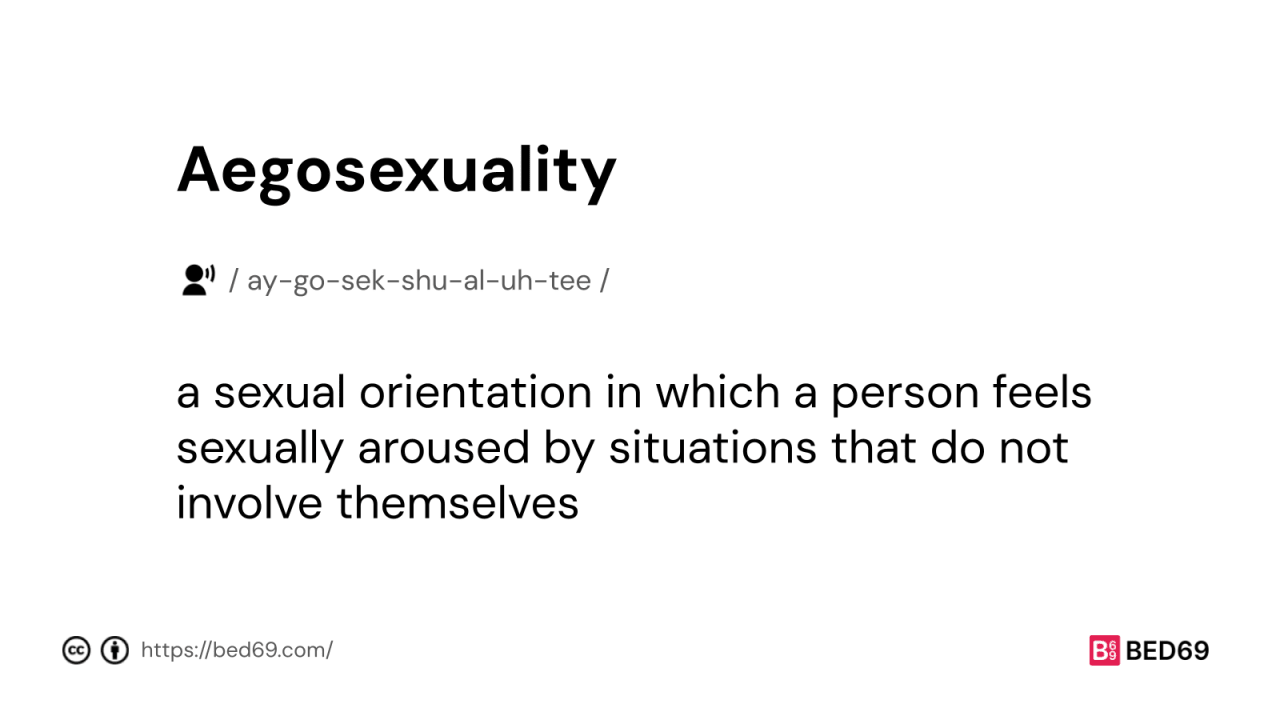What is Aegosexuality?
Aegosexuality is a sexual orientation that refers to people who exclusively feel sexually aroused by scenarios that don’t involve themselves. It is a type of asexuality, meaning that a person who identifies as aegosexual does not experience sexual attraction to others. Instead, they may feel sexually aroused when observing sexual acts, watching movies or reading books that depict sexual scenarios, but they do not have the desire to be actively involved in the sexual acts.
Aegosexuality pronunciation: / ay-go-sek-shu-al-uh-tee /

How does Aegosexuality Impact Relationships
Aegosexuality can influence relationships in unique ways. For aegosexual individuals, their sexual arousal is linked to observing rather than participating in sexual activities. This preference for being a passive observer can impact intimate relationships. Partners may need to navigate a dynamic where one person does not seek active engagement in shared sexual experiences, focusing instead on external stimuli.
In relationships, understanding and communication are key. Aegosexual individuals and their partners may need to discuss boundaries, desires, and comfort levels openly. It’s essential for both parties to respect each other’s needs and preferences regarding sexual intimacy. This mutual understanding can foster a supportive and fulfilling dynamic, where emotional connection and communication take precedence over traditional sexual expressions.
Navigating relationships as an aegosexual individual can involve challenges and growth opportunities for both partners. By fostering open dialogue, mutual respect, and empathy, couples can build strong emotional connections that transcend conventional notions of sexual intimacy.
Ultimately, embracing differences in sexual orientation can lead to deeper understanding and acceptance within relationships, promoting trust, respect, and authentic connections.
Common Misconceptions Surrounding Aegosexuality
Some misunderstand aegosexuality as merely enjoying erotic content, missing its deeper meaning as a distinct sexual orientation. There’s a misconception that aegosexuals lack understanding of sexual attraction, which isn’t true— they experience sexual arousal, just not directed towards others.
Another misconception is viewing aegosexuality as a fetish or paraphilia, which disregards its place within the asexual spectrum. People might wrongly assume aegosexuals are disinterested in sex entirely, overlooking their unique experience of sexual arousal in specific contexts.
It’s important to clarify that aegosexuality isn’t about avoiding intimacy or having a disinterest in relationships; it’s about how sexual arousal is experienced. Aegosexuals may feel misunderstood or face skepticism within the asexual community, where acceptance varies.
Understanding aegosexuality involves recognizing it as a valid orientation, distinct from mainstream sexual norms, and appreciating the diversity within human sexuality without judgment.
Explore other interesting terms:
